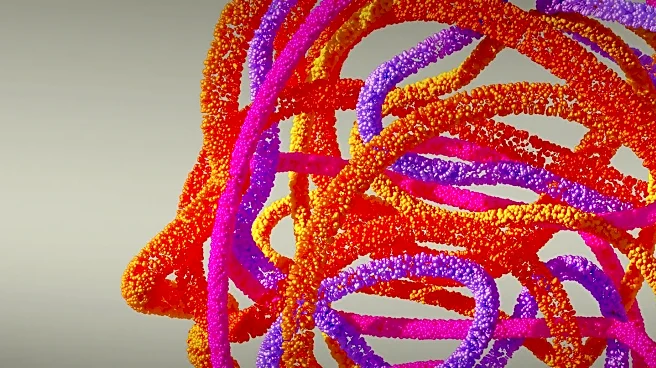What is the story about?
What's Happening?
uniQure has reported positive topline data from its Phase I/II study of AMT-130 for Huntington's disease. The study met its primary endpoint, demonstrating a 75% slowing of disease progression as measured by cUHDRS at 36 months compared to a control group. It also met a secondary endpoint with a 60% slowing of progression measured by TFC. The treatment showed favorable trends in motor and cognitive function tests and was well-tolerated with a manageable safety profile. The study involved 29 patients, with outcomes compared to a control group from the Enroll-HD natural history data set.
Why It's Important?
The study's results are crucial as Huntington's disease lacks effective treatments to slow its progression. AMT-130's success offers hope to those affected by the disease, highlighting the potential of gene therapy to modify disease progression. The findings could lead to a shift in the treatment landscape for Huntington's disease and other neurological disorders, supporting the development of precision-delivered gene therapies. The study reinforces the potential of gene therapy as a transformative approach in treating severe medical conditions.
What's Next?
uniQure plans to discuss the study data with the FDA at a pre-BLA meeting later this year, with the goal of submitting a BLA in early 2026. The company aims for a U.S. launch of AMT-130 in 2026, pending regulatory approval. The treatment has received Breakthrough Therapy and Regenerative Medicine Advanced Therapy designations from the FDA, which may facilitate the approval process. uniQure continues to analyze data and conduct further studies to ensure the treatment's efficacy and safety.















